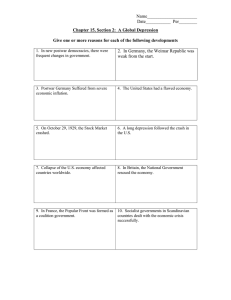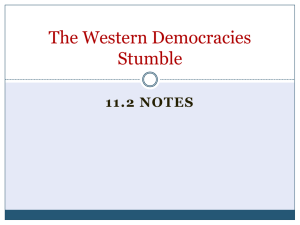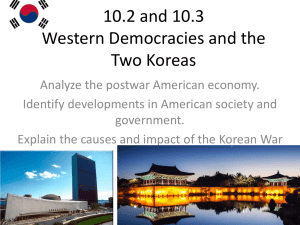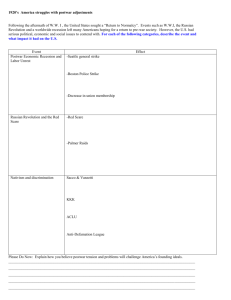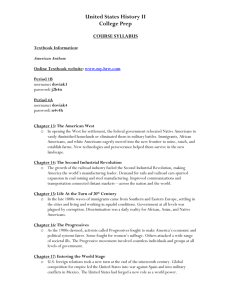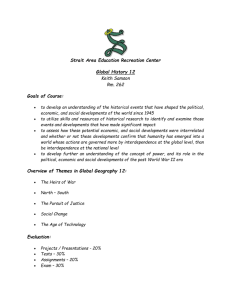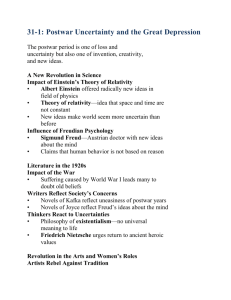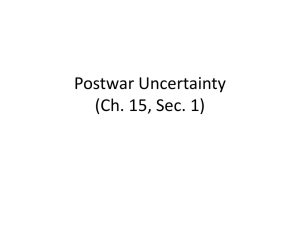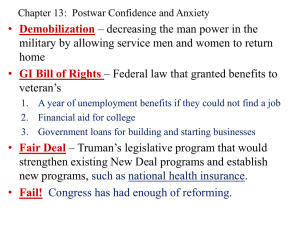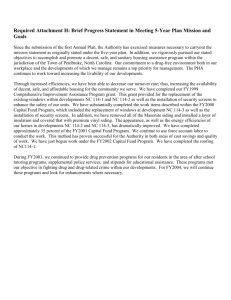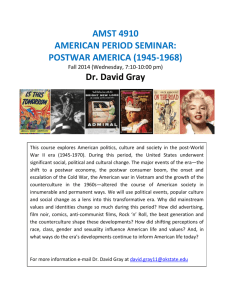Chapter 28
advertisement
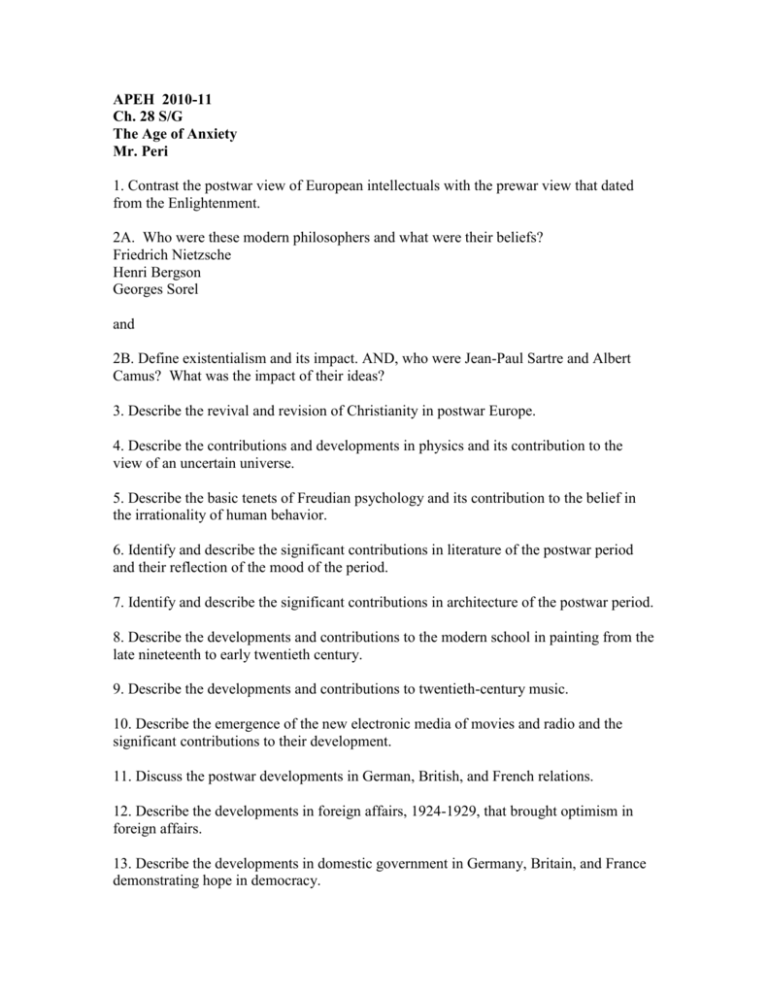
APEH 2010-11 Ch. 28 S/G The Age of Anxiety Mr. Peri 1. Contrast the postwar view of European intellectuals with the prewar view that dated from the Enlightenment. 2A. Who were these modern philosophers and what were their beliefs? Friedrich Nietzsche Henri Bergson Georges Sorel and 2B. Define existentialism and its impact. AND, who were Jean-Paul Sartre and Albert Camus? What was the impact of their ideas? 3. Describe the revival and revision of Christianity in postwar Europe. 4. Describe the contributions and developments in physics and its contribution to the view of an uncertain universe. 5. Describe the basic tenets of Freudian psychology and its contribution to the belief in the irrationality of human behavior. 6. Identify and describe the significant contributions in literature of the postwar period and their reflection of the mood of the period. 7. Identify and describe the significant contributions in architecture of the postwar period. 8. Describe the developments and contributions to the modern school in painting from the late nineteenth to early twentieth century. 9. Describe the developments and contributions to twentieth-century music. 10. Describe the emergence of the new electronic media of movies and radio and the significant contributions to their development. 11. Discuss the postwar developments in German, British, and French relations. 12. Describe the developments in foreign affairs, 1924-1929, that brought optimism in foreign affairs. 13. Describe the developments in domestic government in Germany, Britain, and France demonstrating hope in democracy. 14. Describe the economic crisis that brought the Great Depression of the 1930’s. 15. Describe the resulting mass unemployment of the Great Depression. 16. Discuss the policies of the New Deal in the United States and their effects on the people and the economy. 17. Describe the policies developed in the Scandinavian nations in response to the Great Depression. 19. Describe the government programs and policies in Britain and France developed to meet the Great Depression.
